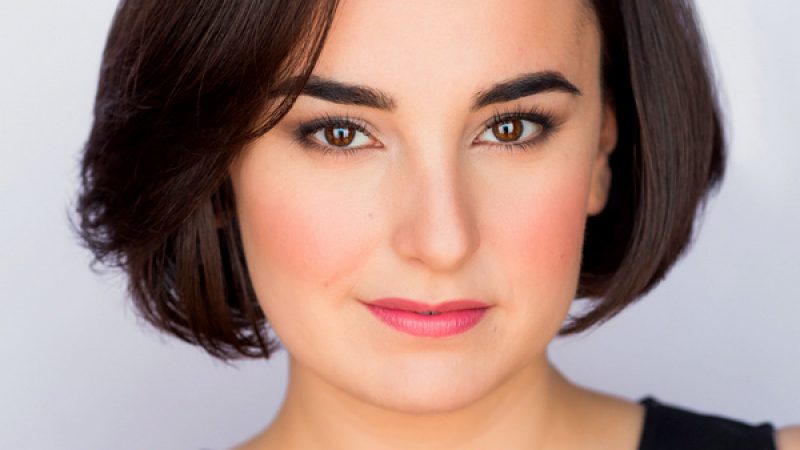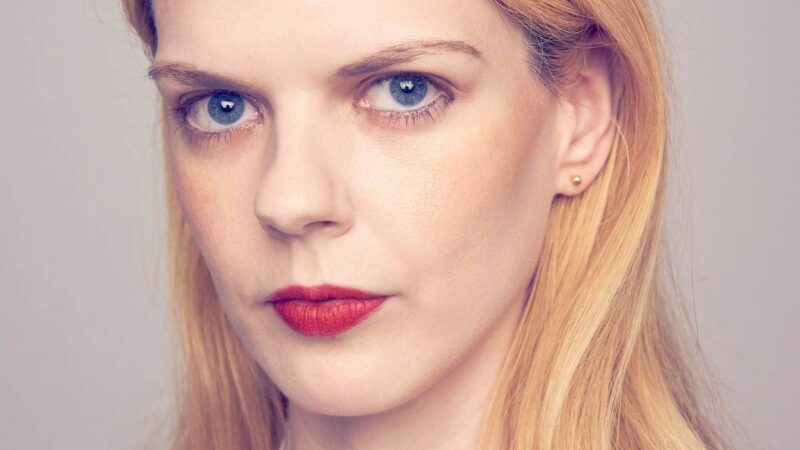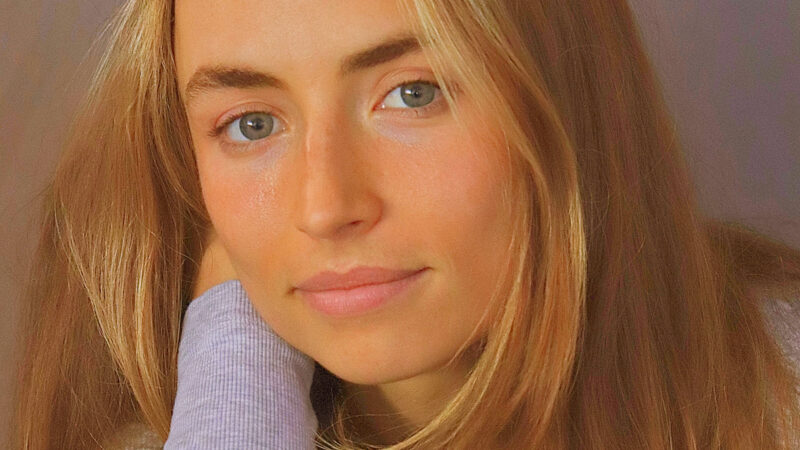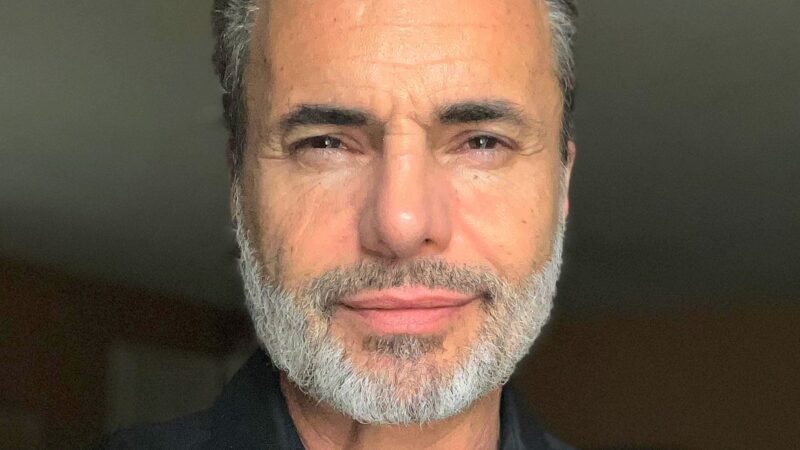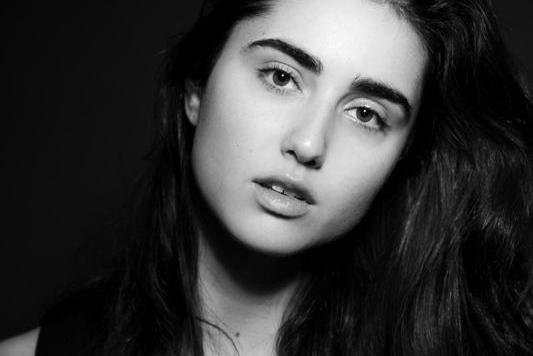
Hannah Abdoh was interning in New York on a National Geographic documentary on Mexican cartels. Leading up to that she had spent a year in Beirut, Lebanon. There, Hannah lived and worked in the Bekaa Valley as a self-defense instructor. Where the many Syrian refugees resided at that time.
“I remember feeling while I was in Beirut, incredibly close to life. Every image felt like something I wanted to share with the world. Subliminally, I think it shifted something in me”, says Hannah Abdoh.
She continues, “My aspirations of becoming a journalist started to dwindle. And, I felt what was really missing was Middle Eastern stories captured in film, in theater. Something I’ve long wished to be a part of. Acting felt like a really exciting way to do that”.
After the documentary. Hannah kind of took a shot out of the blue and decided to audition for various studios in the city. She ended up at Lee Strasberg Theatre and Institute for a 3-year program. “And, it was one of the best decisions I’ve ever made”, she says.
The Acting Reel of Hannah Abdoh
How has your acting improved?
Hannah Abdoh (HA): I trained in Method acting for three years at the Lee Strasberg Theatre and Film Institute. It’s been very rewarding to be involved in film since graduating a year ago. And being able to practically use the tools that I learnt in my training.
I think you never truly know how much of an impact the technique has on you until you find yourself recreating it. Without the environment of a classroom and a professor to guide you.
Having said that, I’ve worked with different actors and always admired watching them prepare and love how different we can all be to each other. In the end, everybody has what works for them, it can end up being a confluence of techniques or perhaps, no technique at all but simply what allows them to step into the moment and the skin of that character.
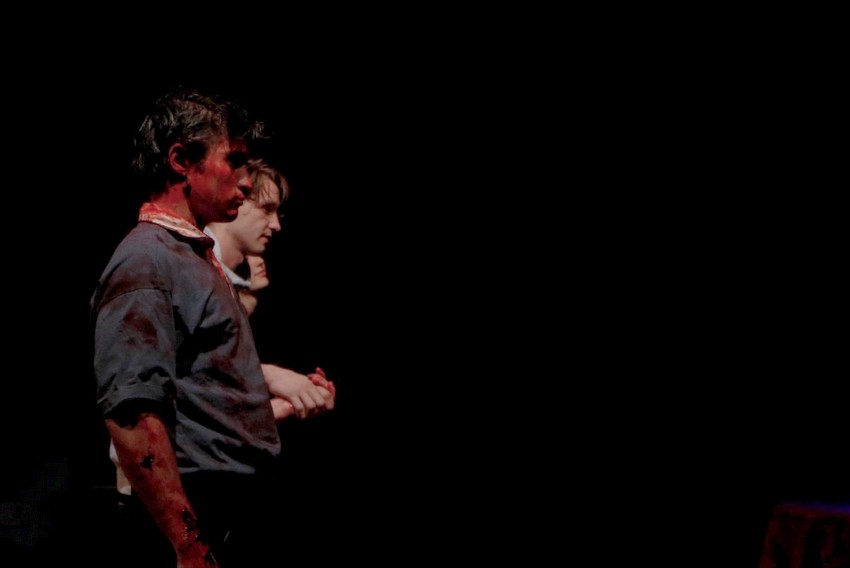
You are an experienced actor, how much work: creativity, energy or focus do you put into your scenes?
Hannah Abdoh (HA): Acting is my job but it’s also what I love. I think it’s important to come at every scene with energy and focus but seeing what the scene calls for comes down to your perception.
Take risks. Most of the acting I get to do is through auditions and I find auditioning hard a lot of the time. When it feels easy is when I throw rules out of the window and it becomes this living thing.
Why should an audition feel different to a scene from a movie or a scene on stage? I remember one of my closest friends saying to me, this is our chance to use casting as our 4-man audience or however people you want to imagine viewing your tape.
That’s when it becomes exciting and you start to think about angles, physicality and props, how to enter a frame etc. and not just how to stay between the lines, literally.
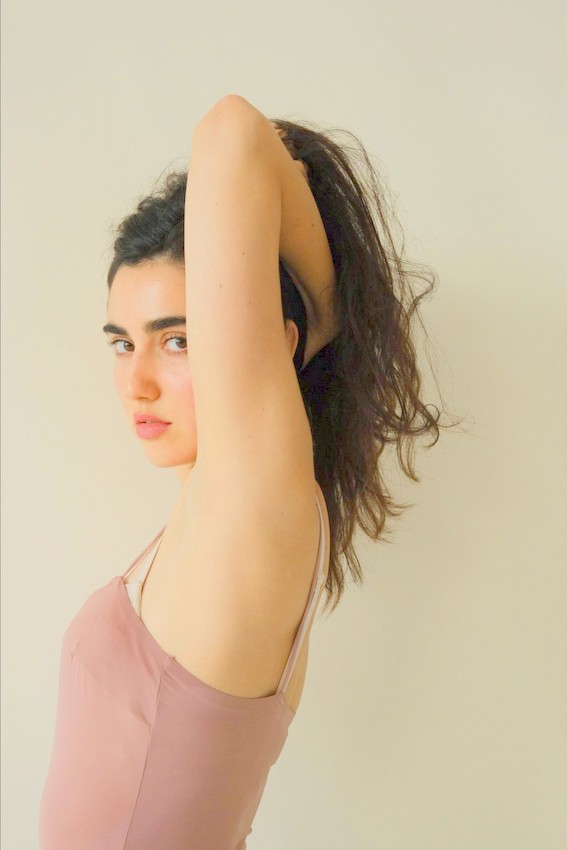
You’ve worked on popular shows, and film. How has each impacted your work as an actor and your career?
Hannah Abdoh (HA): I think with every new project, whether it be film or theater, I leave the experience feeling shifted by the people I collaborate with. Every director leaves a mark on me, whether it be their style of directing, the relationship I had with them on set, they teach me something different about the work and bring a certain expansiveness.
I think every character does shift something inside of you, there are things I used to think I could or would never do but because of that character I was able to detach from my personal do’s and don’ts and just do them.
I find they can really liberate parts of you – what we’ve constructed in our minds and that aspect of the work feels pretty unmatched. You’re learning about them but you’re learning about yourself and how the people around you created that vision in their mind but also how you and the other actors may have changed their initial conception.
This year, my experiences have brought me a lot of new found confidence which I don’t think I had before, certainly in a set environment or even self-tapping in my bedroom. Sometimes I lose inhibition, other times I gain it. It’s a process that ebbs and flows with time in a way that reflects life – the process isn’t linear but hopefully, you can make the most of wherever you are at that moment. I tell myself not to fight it too much.
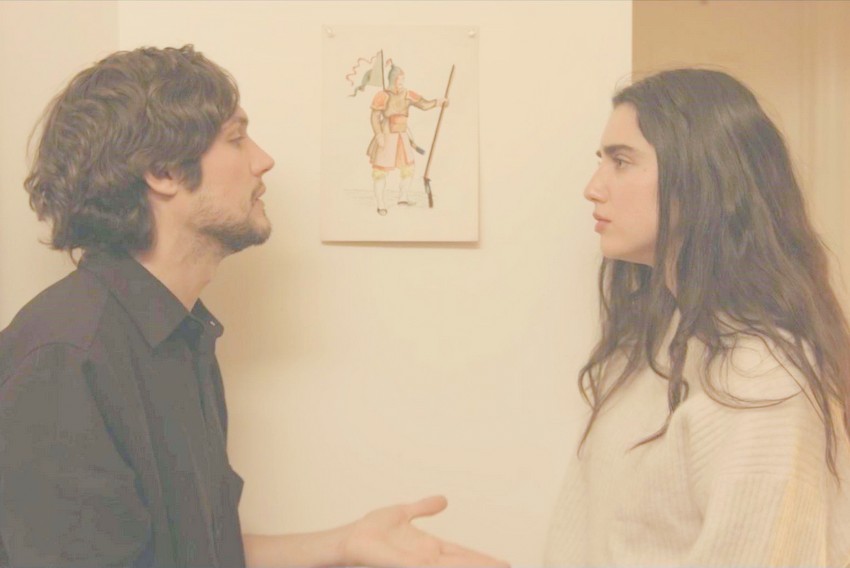
Let’s take a show you’ve done, how did you prepare for such a role: the cast, the physicality the terrain, the climate, weather, and the demands of the show?
Hannah Abdoh (HA): Just as I graduated, I was cast in my first play in New York that was selected by the New York Theatre Festival. The play was called “Scissors” written by Cornelius Boederes and directed by Luisa Gallati. The writing was incredible and the characters were dark and original which provided a lot of comedic relief, the kind of material that, as a Londoner, I deeply resonated with.
It was a three man show between myself, Cornelius and another very talented friend of mine Aedan Jayce. My character, Cleo, felt volatile and unstable and it was my first time stepping into the shoes of someone who was seemingly ‘twisted’ and at times cruel so it was my job to bridge that distance for myself or it would never be bridged for the audience.
One thing about this role was you kind of had to work backwards with Cleo. There was a lot she didn’t say, in fact she hardly spoke about herself so I had to figure out what it was all about, why she did and said the things she said. That’s when you can bring in parts of yourself, people that you know and start building it in to create this character because the parameters aren’t strict.
Going back in time helped with that, creating her timeline and the moments that shaped her long before the moment you meet her helps inform who she is – what kind of thoughts and feelings are guiding her.
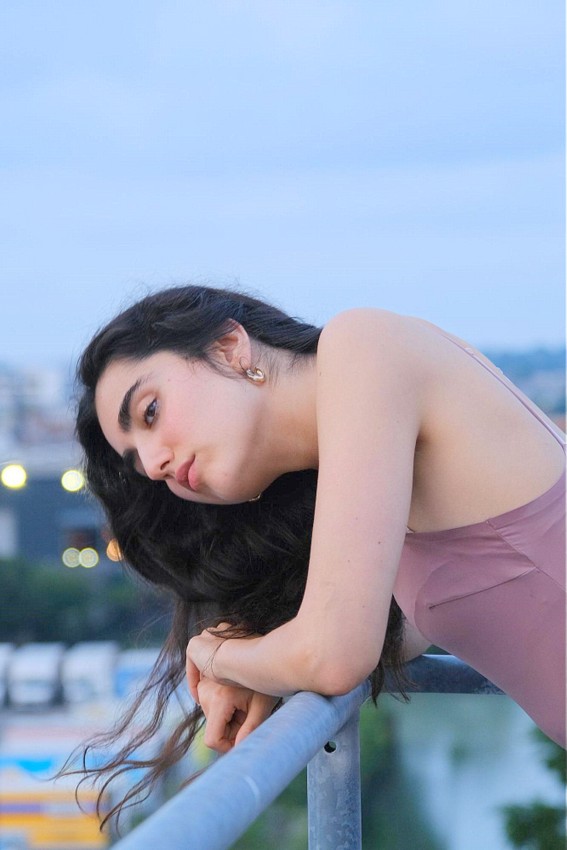
How do you get into character?
Hannah Abdoh (HA): When I read a script. Let’s be honest, it takes me a few times. I first want to get the general gist of the story, how the characters inter-relate; the dynamic, where everyone fits. When I start to narrow into a character; I look at the way they respond, what they are saying of course, what they aren’t saying. If the writing is good, everything will be in the writing. From there, I’ll get a surface understanding of what I am dealing with.
I like to isolate the beats in the play for my character, what their arc is, where they started and where they ended. And weirdly enough, I like to start building those moments into my real life as my preparation, particularly if the scene demands a certain emotional intensity.
It helps me ground the moment into something tangible and is what really allows me to internalize the character. The last thing I want to face as an actor is lack of preparation. There are plenty of things that are beyond my control but some beats in the story are more daunting than others and those are the ones you want to feel the most confident of – so that when you get there, you can let go and just receive what’s being given to you.
What are your principles on a production set?
Hannah Abdoh (HA): My main principle is: if the crew likes you, you’re doing a good job. I’m not sure when I understood that the crew of any film set is the pulse of any film. As actors, we like to talk about our relationships with other actors and of course the director which are incredibly vital but I personally believe that everything begins and ends with the crew. As far as staying in character, in my most recent project, I found it hard breaking in and out of character, especially for the “bigger” scenes.
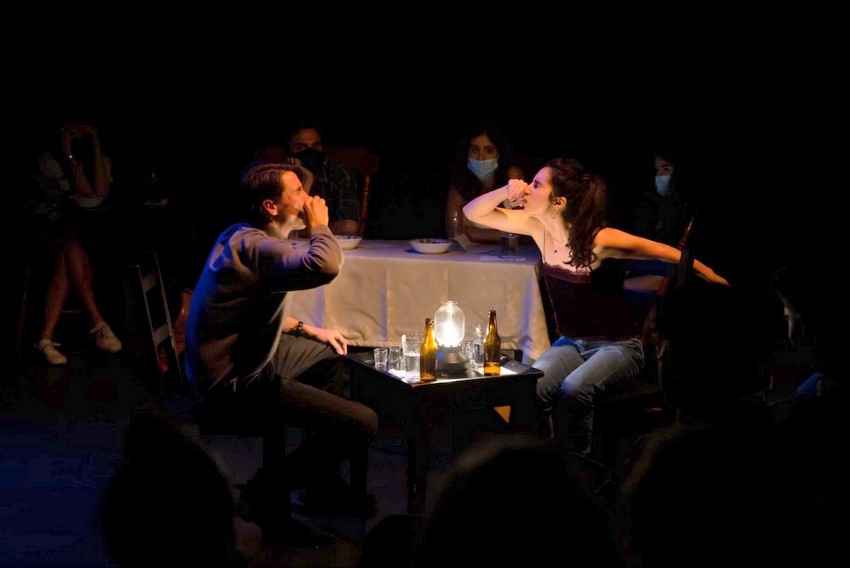
There are days when it is great to socialize and hang out with your cast and crew included, that’s what makes for such a great and memorable experience on set however if I am feeling anxious about a scene or wanting to be in a particular headspace – I find it easiest to create a space for myself and not pay too much attention to what’s going on around me.
Explain one creative choice you took on the set?
Hannah Abdoh (HA): When I was rehearsing for Scissors and playing the very exciting character of Cleo, I remember wanting to isolate moments of vulnerability. When you’re playing someone who’s a bit of a sociopath, it’s easy to fall into a caricature and forget to humanize them.
I worked closely with the director on Cleo’s character and at one point in the play, her boyfriend Calvin (played by Cornelius Boeder) reads her a fantastical child story about a purse who couldn’t open its zipper. It was funny because half of the play was about Calvin’s efforts to get Cleo to open up about her inner world with him emulating therapy sessions in their living room and her finding every tactic not to succumb.
When the director guided me through that scene she said ‘just sit, see what happens’, I decided that this would be one of the only moments we would see Cleo be truly vulnerable. It was probably my favorite moment in the entire play. She was sitting slightly in front of Calvin so as the music played and he read his story, he wouldn’t see what the audience would, splitting their realities yet again in half.
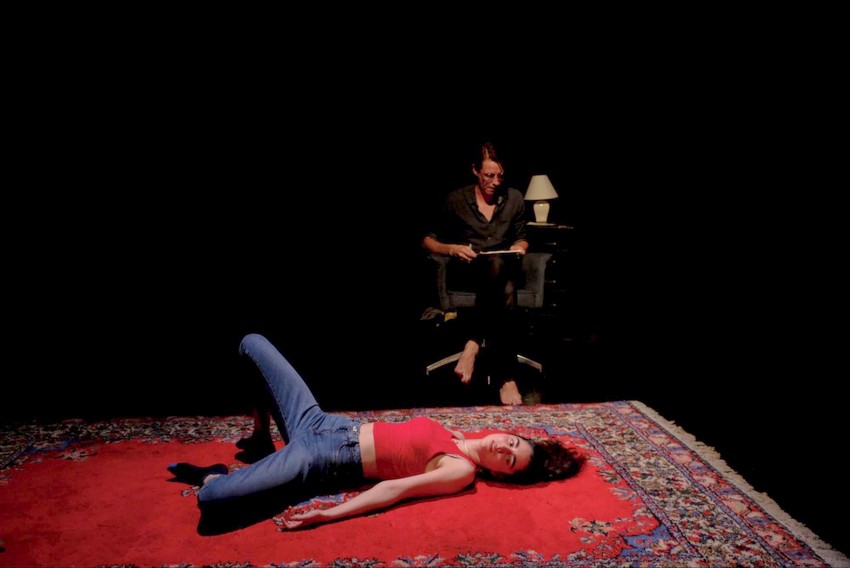
The power and intimacy came from revealing her secret world selectively, because the moment felt so isolated in relation to the rest of the play and because the story was imaginary and bore no relation to their lives, it also felt like an interesting place to let her feel. That’s when her character really spoke to me.
When you asked her directly how she felt, she couldn’t respond, she could only ever lure you in and then attack or put up her wall again when you least expect it but when it was a bedtime story, the stakes were low, the pressure wasn’t on her and she could find herself in the furthest possible realm. I felt she came with a beautiful message.
Tell us about your new exciting projects?
Hannah Abdoh (HA): I’ve been lucky to be cast in my first Off-Broadway play that will be taking place in February 2024 at the Flea Theatre in Tribeca. The play is called “Plasters’ written and directed by Emma Tadmor which debuted at the Edinburgh Fringe Festival and is making its Off-Broadway debut in New York. I have followed her story and her work for years. I think she’s a tour de force in the making and I’m really excited to bring this story to life.
Something else I’m really excited about is my first short film “Cortado” which I wrote, co-directed and acted in, alongside Juan Teisaire and recently won multiple nominations and awards at the Strasberg Festival in New York including Best Cinematography, Best Director, Best Actor and Best of Festival. It is currently in the festival circuit so I hope to let you know more soon!
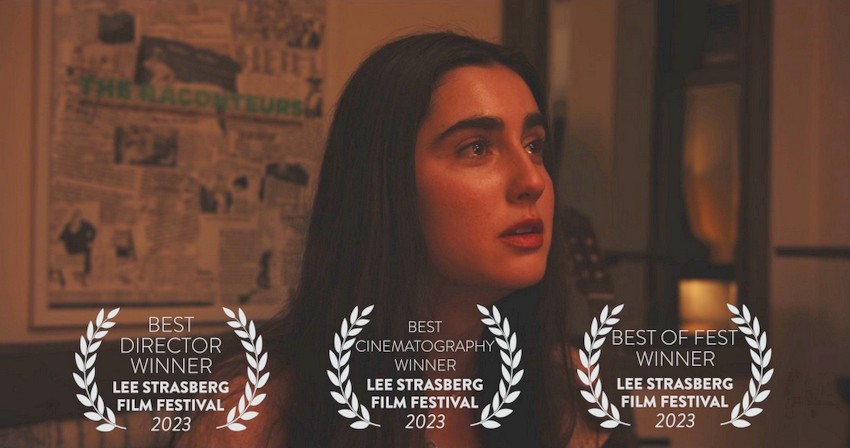
Tell us what you think of the interview with Hannah Abdoh. What do you think of it? What ideas did you get? Do you have any suggestions? Or did it help you? Let’s have your comments below and/or on Facebook or Instagram! Or join me on Twitter.
Socials
IMDb
Facebook
Vimeo
ACTOR INTERVIEWS
Anna Frankl-Duval Unravels Her Career in Film
The New York Based Actress and Singer Discusses Musical Theatre, Plays and Film

